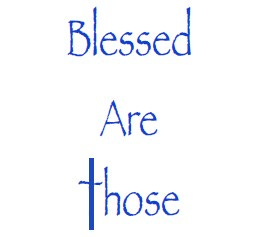The Narrow Road Reconsidered
Our Definition of the Narrow Road Might Just Be the Broad Road in Disguise
Enter through the narrow gate. For wide is the gate and broad is the road that leads to destruction, and many enter through it. But small is the gate and narrow the road that leads to life, and only a few find it.
Matthew 7:13-14
Growing up in the church, Jesus’ words about the narrow and broad roads always seemed easy to understand. There were those on the narrow road going to heaven (true Christians) and those on the broad road to destruction (the unchurched and those in churches we didn’t agree with). It was one of those passages that bolstered our own pride while also serving as a convenient weapon of judgment against others. Of course, this was all built around a particular definition of the narrow road. Our tendency was to paint the picture of the narrow road as one of morality and behavior, a path that was delineated by what we did or did not do. The path was doing the right thing and rules were the guardrails.
If this is the heart and full meaning of the narrow and broad roads, however, something doesn’t make sense. Jesus’ consistent criticism of the Pharisee’s apparent righteousness throughout the Sermon on the Mount is puzzling if the narrow road is defined solely by behavior and moral conduct. The Pharisees were pretty good at that stuff, after all. They didn’t even bump into the guardrails, let alone step over them. And yet, Jesus was not impressed. Earlier, in fact, he told everyone that “unless your righteousness surpasses that of the Pharisees and the teachers of the law, you will certainly not enter the kingdom of heaven.” (Mt. 5:20) Surprising words if the narrow road is all about good behavior.
Perhaps the road to which we are called is built on something deeper than a moral code of conduct. We cannot divorce these words about gates and roads from the overall tenor of Jesus’ message in these three chapters of Matthew’s gospel. There must be, necessarily, a connection to the repeated call to love that we see not only in the Sermon on the Mount, but through all of Jesus’ teachings. If the greatest commandment is to love God with all of our heart, soul, mind, and strength, and the second is to love our neighbor as ourselves, then should we not understand the narrow road through that lens? The life to which we are called, the gate we are to walk through and the narrow road we are to travel, is one defined by love. The heart filled with the fullness of love for God and others, by the transforming work of the Spirit, is the narrow way.
When we understand this narrow road as the way of Christlike, self-giving love that is offered even to the enemy and the outsider, we recognize that few indeed find it. We might even need to confess that we have wandered off it ourselves. There is an interesting turn that occurs when we reduce the narrow road to nothing more than a code of moral conduct. We turn our path of obedience into a source of pride and means of judgment, and in so doing, violate the law of love itself. Our version of the narrow road becomes, in reality, the same wide gate we claim to condemn. It is the wide gate and broad road that does not look like Jesus, so it is the wide gate and broad road that refuses to love. Love is the narrow gate, love is the narrow path, love is always the guardrail and guide.
This is the way of Jesus.
Prayer for Today:
God of love,
The broad path is so easy to follow, to believe that I do not need to offer love to my enemy, to those who disagree, or to those I consider undeserving. But that is not your way, and I pray for the grace to walk the narrow path of love. May all who cross my path today see in me the love of Jesus.
Amen




